
Developing connectivity infrastructure
Discussing this content, the delegates all agreed with the arrangement of administrative units. This is a correct policy, with a very high political determination to carry out the revolution of streamlining the apparatus; public opinion and people's opinions are highly in agreement. At the same time, the delegates expressed concerns about a number of issues related to the use of public property headquarters; the arrangement and consolidation of the apparatus, staff assignment; regimes and policies applied after the merger...
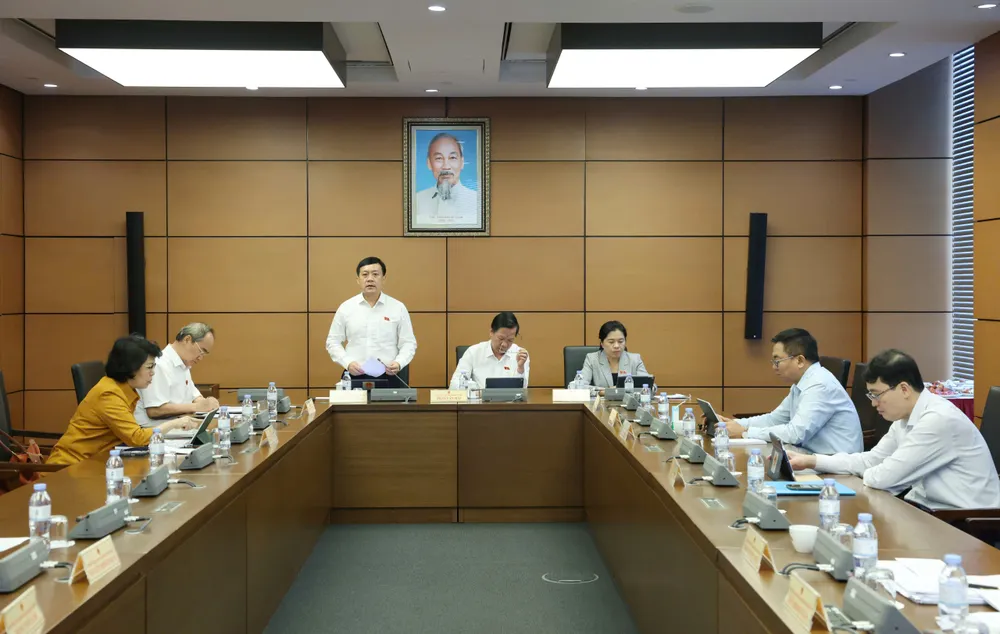
Deputy Tran Hoang Ngan (HCMC) emphasized that in the current context of technology and digital transformation, streamlining the apparatus is very necessary. On the other hand, according to the Deputy, it is necessary to restructure the current development space, so arranging provincial-level administrative units is necessary.
However, to ensure the arrangement is effective, efficient and efficient, it is necessary to ensure the connection between provinces and cities, including digital infrastructure, so resources are needed, including financial resources. Deputy Tran Hoang Ngan suggested that when the National Assembly considers the Law on State Budget (amended), regarding the source of land use funds, in the first 5 years, it should be left to localities to have investment resources. "If most of the regulation is directed to the Central Government, localities will be weak in resources, infrastructure will not be invested, limiting the ability to develop," the Deputy said.
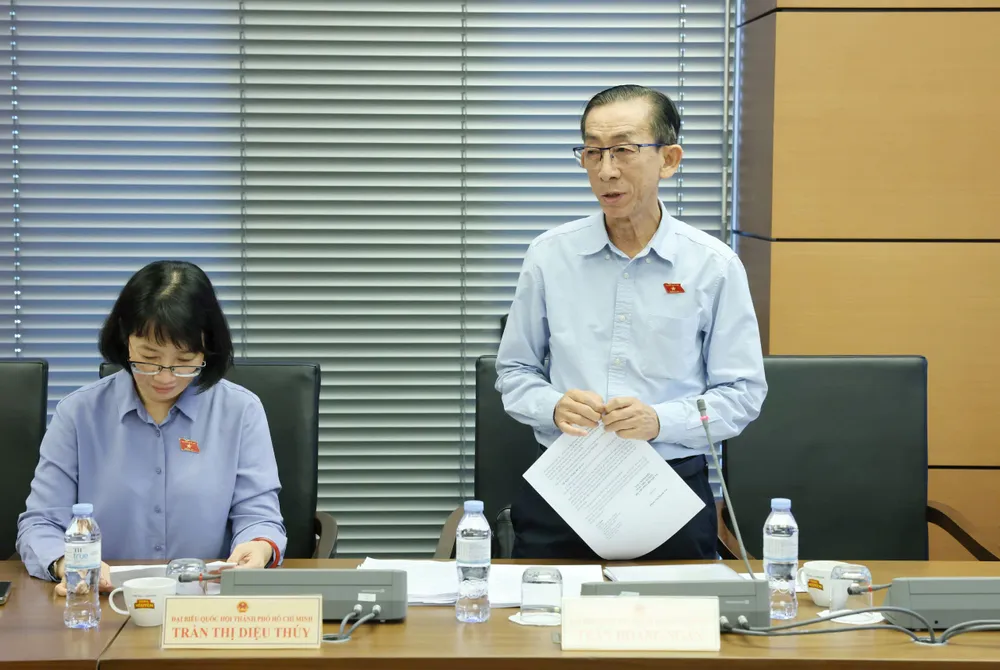
Along with that, Deputy Tran Hoang Ngan said that it is necessary to remove institutional bottlenecks, although currently being done strongly, it needs to be done more strongly in the coming time. In particular, it is necessary to promote strong decentralization to localities so that localities can have more autonomy. The apparatus and resources of localities must be compatible with the population size and economic scale of the locality. For example, Ho Chi Minh City is a megacity, so it must have a compatible apparatus to promote the advantages of the new development space.
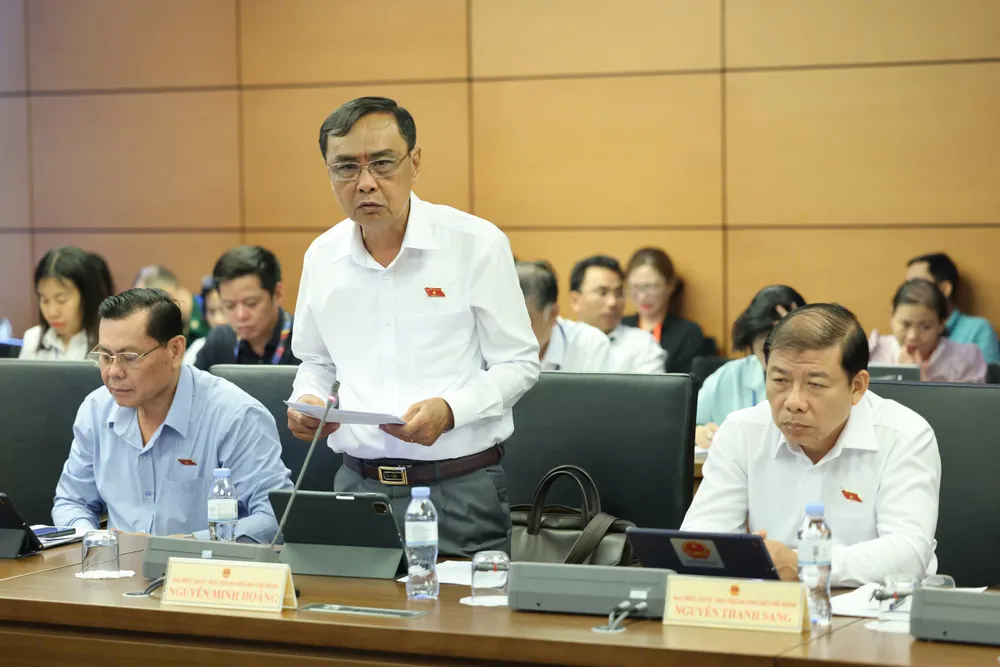
Deputy Nguyen Minh Hoang (HCMC) also emphasized that the arrangement of provincial-level administrative units is a historical issue and must be done effectively. According to the Deputy, it is necessary to pay attention to the consensus of the people when arranging administrative units to ensure the great unity of the whole nation...
Regarding the issue of development space after the merger, it is necessary to focus on infrastructure issues to ensure effective development; ensure benefits for cadres after the merger, including support for cadres working far away.
Effective use of provincial public offices
According to the Government's report, the total number of provincial-level public headquarters of 52 provinces and cities to be reorganized is 38,182; the number of public headquarters expected to continue to be used is 33,956, and the number of surplus public headquarters expected to be 4,226.
Although in the submission, the Government also raised the issue that after the resolution is issued, the Government will have specific instructions on handling and using public assets appropriately, but Deputy Dang Ngoc Huy (Quang Ngai) still requested that the resolution clearly stipulate the policy of prioritizing the arrangement and use of surplus headquarters, especially prioritizing the arrangement for the education, culture and health sectors.
Sharing the same view, Deputy Ma Thi Thuy (Tuyen Quang) said that the Government needs to urgently arrange surplus headquarters, and should have regulations in the resolution instead of implementing the Law on Public Asset Management which has many steps, cumbersome procedures and takes a long time.
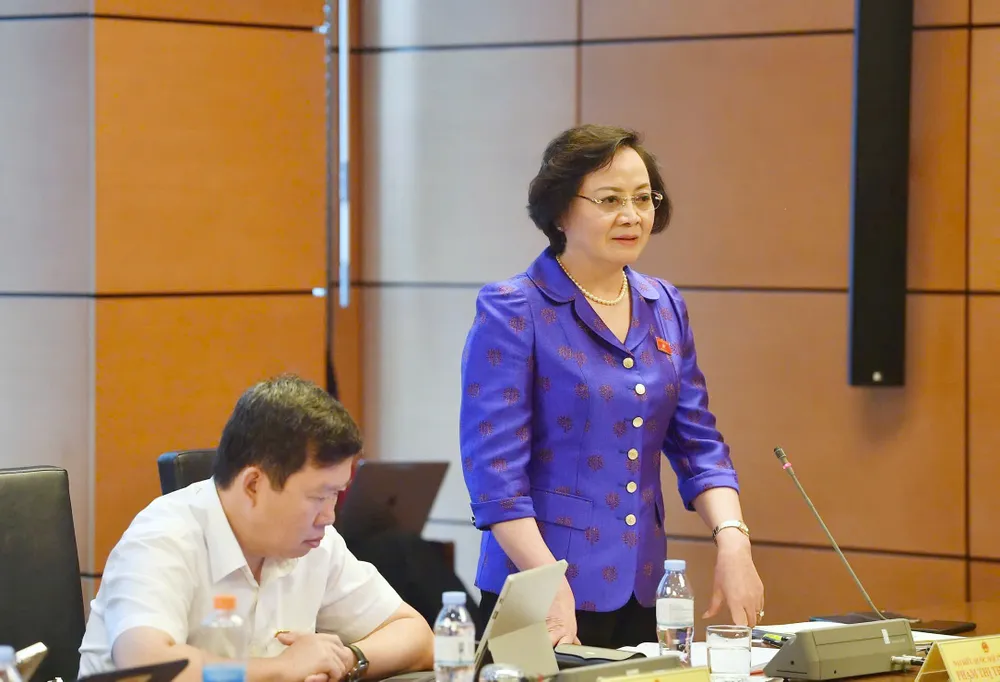
Speaking at the meeting, Minister of Home Affairs Pham Thi Thanh Tra summarized that we are witnessing a revolution in the synchronous and thorough organization of the apparatus. This is a comprehensive restructuring, not only in terms of territorial organization space but also in terms of institutional, cultural, economic space... Although it is being implemented at an urgent speed, requiring lightning speed, the implementation work is still very cautious, thorough, methodical, scientific, strict, serious and certain.
The Minister said that this is the biggest revolution since the country's founding. Implementing the restructuring of the entire political system and building a two-level local government model is new, but it is in line with the general development trend of the times and many countries in the world. "In particular, this is the time to restructure the administrative system, in line with the development trend of the country entering a new era," the Minister emphasized.
Therefore, the Politburo and the Central Executive Committee carefully consider in many aspects, not only natural area and population size but also all aspects such as history, culture, ethnicity, religion, beliefs, development philosophy, ideology, social psychology, etc.
Sharing about the importance of arranging provincial-level administrative units this time, the Minister mentioned a huge change in thinking, demonstrated by not only arranging adjacent administrative units, but also calculating based on the natural territorial morphology, especially towards the sea.
Regarding the policy for cadres, civil servants and public employees after the reorganization, the Minister said that in addition to Decree 178, amending and supplementing Decree 67, to implement the goal of restructuring the cadres and civil servants, the Ministry of Home Affairs is amending and supplementing Decree 29 on streamlining the payroll. Accordingly, the Ministry proposed to add more subjects of non-professional cadres at commune, village, residential group levels and contract subjects. In the near future, the Ministry of Home Affairs will review more cases of labor contracts in the payroll.
Regarding the issues of arranging assets, finances, and related work, the Minister said that they will be clarified at the national training on organizing the operating apparatus of two-level local governments on June 14 and 15.
Source: https://www.sggp.org.vn/can-su-dung-hieu-qua-so-tru-so-cong-cap-tinh-sau-sap-xep-post799007.html





























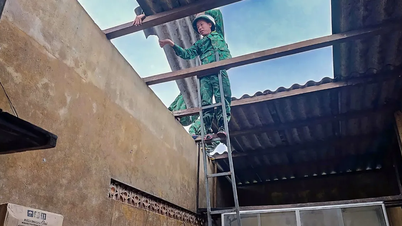
![[Photo] Prime Minister Pham Minh Chinh receives leaders of several Swedish corporations](https://vphoto.vietnam.vn/thumb/1200x675/vietnam/resource/IMAGE/2025/6/14/4437981cf1264434a949b4772f9432b6)












































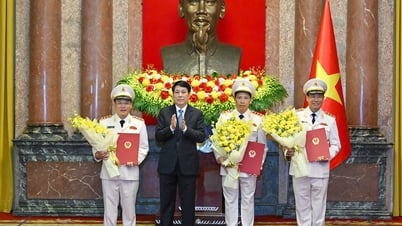

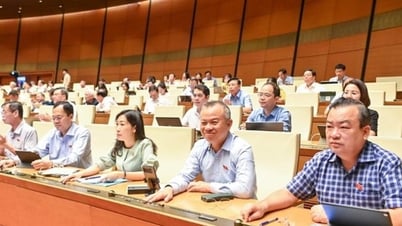



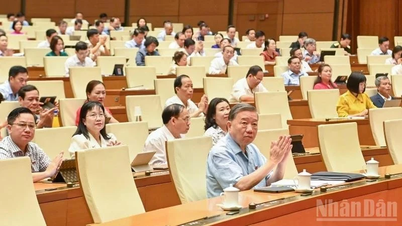




















Comment (0)